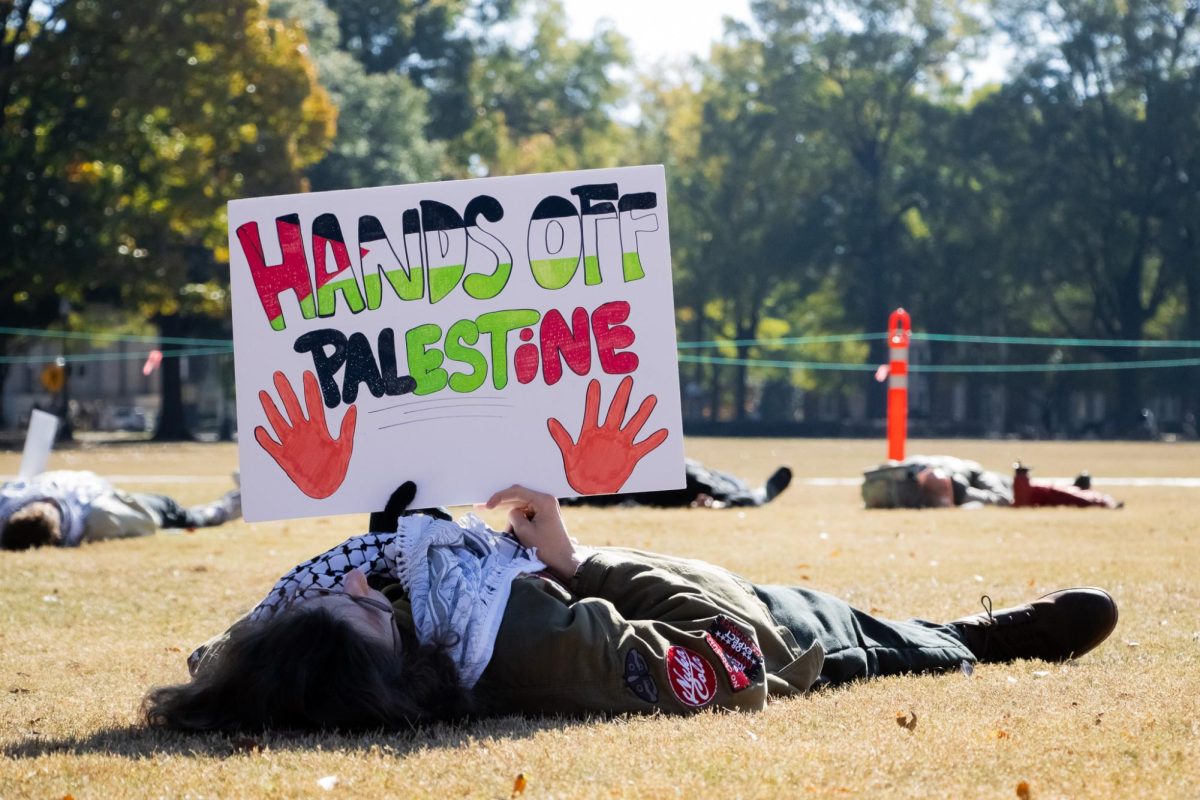After stepping out of the elevator, students were led to a community room by a trail of paper cutouts of feet, each bearing stereotypical phrases like “the Irish are drunks” and “Jews are cheap.” The feet were intended to draw attention to stereotypes all over campus, the focus of an event titled “Breaking the Mold.”
The event was put on by the restaurant and hospitality management department and University Programs to highlight and address how people view each other on campus.
Students were offered pizza and refreshments as they took their seats. In one corner, students could participate in arts-and-crafts. The event opened with a short video in which students were asked how they violated stereotypes.
“We cover everything from ethnicities to personal characteristics like hair,” said Jennifer McCollum, a graduate student with University Programs who helped advertise the event. “This one says ‘Rednecks love hunting and NASCAR.’ That’s a stereotype. It’s not true. This one says ‘Italians are gangsters.’ That’s not true.”
(See also “Negative stereotypes, dirty politics fuel welfare hatred“)
Jessica McCrackin, a junior majoring in restaurant and hospitality management and one of the students who helped create the event, focused on cultural diversity.
“For the video, we took photos with their whiteboard with stereotypes on them and how they’re not their stereotypes,” McCrackin said. “One of them said ‘I’m a physics student, but I know how to talk to girls.’ We also interviewed a sorority girl, who had been discouraged from joining her sorority because she wasn’t the ‘right type.’”
Afterwards, a panel opened up for questions, consisting of Marketing Director of Alabama Press, J.D. Wilson; political science graduate student Lindsey Smith and Director of Crossroads Community Center Lane McLelland.
“When we talk about stereotyping, you must understand that it can be painful to others,” Smith said. “If people think sorority girls are dumb, that’s hurtful. And it’s that way with discussion about ethnicity or race, too.”
(See also “Male nursing group works to break stereotypes“)
The panel introduced themselves then engaged the audience in a friendly dialogue, asking them about various stereotypes they had experienced or observed on campus. They also discussed how to draw the distinction between various stereotypes and how hurtful different ones can be.
“If you’re like me, and you’re gay, you can fly under the radar screen if you want,” Wilson said. “If you’re black, you can’t push a button and not be black. If you’re black you have to be authentic, but if you’re gay, over the decades, people can get so used to flipping that switch on and off they can get confused about their own identity.”
Students even discussed stereotypes with each other. The discussion covered everything from race to religion to the differences between north and south Alabamians.
“In light of recent events, students need an environment where they feel accepted,” McCollum said. “You are not your stereotypes. A lot of [the event planners] wanted to highlight different demographics but also different stereotypes on campus, and everyone deals with certain stereotypes.”
(See also “Panel discusses black stereotypes“)








